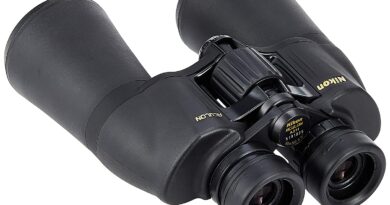Binoculars vs. Cameras: Experiencing the Present Versus Capturing It
Do we still need Binoculars in the age of High-Res Cameras?
In a world increasingly dominated by high-tech gadgets, the humble binocular, an optical device that’s been around since the 17th century, often gets overlooked. In recent years, the advancements in camera technology have been impressive, to say the least. High-resolution digital cameras now offer astonishing zoom capabilities, leading some to question the relevance and necessity of binoculars in the present era. However, despite these technological advancements, binoculars still hold a unique and significant place in various fields. Let’s explore why.
Preserving Real-Time Experience
There is something innately satisfying and profoundly immersive about viewing a distant object or scene in real-time. The immediacy that binoculars offer is incomparable. Even with the most advanced cameras, there’s still a disconnect, as the image you’re observing is often on a small LCD screen or viewed later on a larger display. In contrast, binoculars allow for direct, real-time viewing, providing an experience that feels more natural and engaging.
Ease of Use and Speed
High-resolution cameras, especially those with high zoom capabilities, are often complex devices requiring a certain level of skill to operate effectively. On the other hand, binoculars are simple to use, with little to no learning curve involved. Furthermore, with binoculars, you can quickly focus on a moving target, making them a preferred choice for bird watching, wildlife observation, and sporting events.
Portability and Durability
While there are compact cameras available, they often compromise on zoom capabilities and image quality. Full-featured, high-resolution cameras with high zoom are typically bulkier. Binoculars, however, strike an excellent balance between portability and performance. They are designed to be lightweight and compact, making them convenient to carry during hiking, trekking, or any outdoor adventures. Additionally, many binoculars are built to be robust, with shock-resistance and weather-proof features, something not commonly found in high-res cameras.
Cost-Effectiveness
High-resolution cameras with powerful zoom lenses can be quite expensive. Binoculars, however, cover a wide range of prices, with many quality options available at lower costs. For the casual observer, investing in a decent pair of binoculars can often be more cost-effective than purchasing a high-end camera.
The Limitations of Cameras
While cameras offer the advantage of capturing and storing moments, their zoom capabilities, even in high-resolution models, have their limitations. Optical zoom, the true zoom that doesn’t degrade the image quality, can only reach so far. After a point, digital zoom takes over, which essentially crops into the image, reducing its quality. In contrast, the magnification offered by binoculars is purely optical, providing clear and high-quality views.
Conclusion
High-resolution cameras have indeed revolutionized the way we capture and preserve our memories. They allow us to observe and record the world in stunning detail, freezing moments in time that can be revisited and shared. However, this is fundamentally different from the experience that binoculars provide.
Binoculars are about the “here and now.” They offer an immersive, real-time experience that engages and captivates the user. There’s something deeply personal and immediate about looking through a pair of binoculars, being fully present, and taking in the world as it unfolds. The use of binoculars encourages us to slow down, observe closely, and truly connect with our surroundings.
Thus, even in the age of high-resolution cameras, binoculars retain their relevance. They are not just a tool of the past, but a companion for those who seek to explore and observe the world, whether it be a nature enthusiast tracking a rare bird or a stargazing individual marveling at the wonders of the cosmos. The answer to whether one still needs a binocular is subjective and depends largely on one’s interests and needs. But it’s safe to say that for many, binoculars will continue to be a tool of choice for their simplicity, immediacy, and the unique viewing experience they offer.
In essence, while cameras capture memories, binoculars help create experiences, and these experiences, lived in the present moment with full immersion, often become the most cherished memories.



